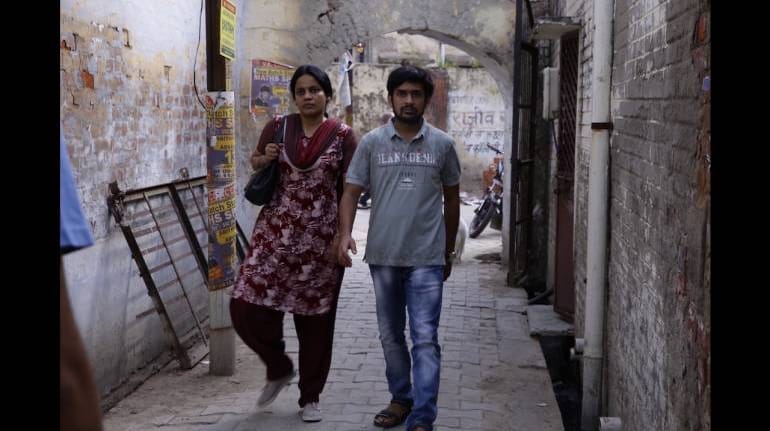



Patriarchy is a harrowing malaise enabling far-reaching human damage in the films of writer-director Kanu Behl, who’s back at the Cannes Film Festival. This time, his new film Agra has been selected for the prestigious Director’s Fortnight, the only Indian film in the non-competitive segment.
In his first feature film Titli (2015), screened at the Un Certain Regard section of the Cannes Film Festival, the father in a lower middle class family of three sons in a suburban cul-de-sac of Delhi doesn’t speak much; when he does it is like a raspy, guttural polyphony. He is a terrifying presence in a film that strips all the sentimentality, gloss and faux-bonding we are used to seeing in the family in an overwhelming majority of Indian mainstream films in any language. This is a family coiled into a terrifying loop of violence — of the fist, which the most daring son hands out, and of abuse trapped in the psyche of all the film’s characters. In 2019, Behl made a short film, Binnu Ka Sapna, which is streaming on MUBI, which is a more piercingly direct portrayal of patriarchy — in a running time of 32 minutes, Behl packs in generational trauma which a father passes on to a son and an almost entire lifetime when such trauma acts out in a man. He looks unflinchingly at that which is commonplace and ugly in Indian families.
Agra, set in the Taj Mahal town, goes deeper into similar psychological caverns. Behl shares credit for the story of Agra with Atika Chohan (Margarita With a Straw, 2104; Waiting, 2015), but it’s been long in the pages. Agra is also about family rot. At the last leg of his post-production for Agra at an editing studio in Mumbai’s Western suburbs, Behl says, “It was a deeply personal and hard subject to explore.” In 2016, he started working on the screenplay and over several months, he chiselled it to no satisfactory end. He was later selected to the PJLF Three Rivers Residency in Italy. “I was in a way beating around the bush. My mentor at the residency was Molly Stensgaard, she’s the editor of Lars Von Trier. It was she who pushed me to the direction it is in now. She advised either to let go of it completely or bring out what exactly I had in mind: To show exactly what sexual repression feels like in a man.” The film got funding from the prestigious Cinema du Monde fund in France and is almost ready for its Cannes journey. It is produced by Saregama India Ltd, UFO Production, and 028 films.
Rehearsals with actors spread over a few months, during which Behl broke down the entire life and impulses of the main characters to the actors playing them — debutant Mohit Agarwal in the role of a young man Guru, Rahul Roy (the lead actor of the 1990s’ hit Aashiqui makes a comeback) is Guru’s father; the other characters include Guru’s mother played by Vibha Chibber, an aunt played by Sonal Jha and others played by Ruhani Sharma, Aanchal Goswami and Priyanka Bose.
At the editing console, I got a sneak peek to a clip. Guru is 25. He sleeps in the same room as his embittered mother. The father lives on the upper floor of the run-down building with his young mistress. The only available space is the terrace. Guru insists that he loves Mala, an imaginary girl and plans to marry her and live with her in a room on the terrace. Agra then is Guru’s sexual unspooling: there’s the imaginary romance, there’s virtual chatroom sex, and sex for the first time with a 40-year-old physically disabled woman who Guru believes he is “falling in love with”. The terrace in this air-scarce domestic structure is a practical aspiration; and a dangerous fantasy plane for Guru.
Titli had a breakneck energy juxtaposed with a relentless grimness. The frames of Agra have a similar energy and minute attention to details of the crusty spaces the characters inhabit. The background sound and cinematography by Saurabh Monga are instrumental in creating another teeming version of an urban inferno — a place without peace or order, where human bonds are brutally transactional.
Behl’s signature so far has been masterful creation of stories sprawling in the human recesses it taps into, claustrophobic in setting and wrenched from real life. Agra is interested in human resistance. “I am not interested in what sexual repression and the shrinking of spaces in the new urban pockets of India can lead to. It is not a commentary or dialogue on what harm sexually repressed masculinity can do to society. That is the audience’s judgement. I want to take you to what it feels like to be that man — all the anxieties and unease that you could have to live with,” Behl says. Behl also told me he hopes the film will open up difficult conversations about sexuality that is ubiquitous but never discussed or addressed. In the post-#MeToo world, male sexuality is a subject that has somewhat faded into the background of online echo chambers — as if trying to understand its calibration is an act of dishonesty and political incorrectness.
This is the kind of filmmaking that the newly expansive OTT space and online avenues of distribution hasn’t yet embraced into its ambit in India. Like Chaitanya Tamhane, Gurvinder Singh, Payal Kapadia and others, Behl’s cinema has no doff to our mainstream conventions. It defies genres and conventions — thriller, psyche drama, documentary realism rolled into one. Hopefully, Agra will find a theatrical release after its Cannes journey.
Discover the latest Business News, Sensex, and Nifty updates. Obtain Personal Finance insights, tax queries, and expert opinions on Moneycontrol or download the Moneycontrol App to stay updated!
Find the best of Al News in one place, specially curated for you every weekend.
Stay on top of the latest tech trends and biggest startup news.